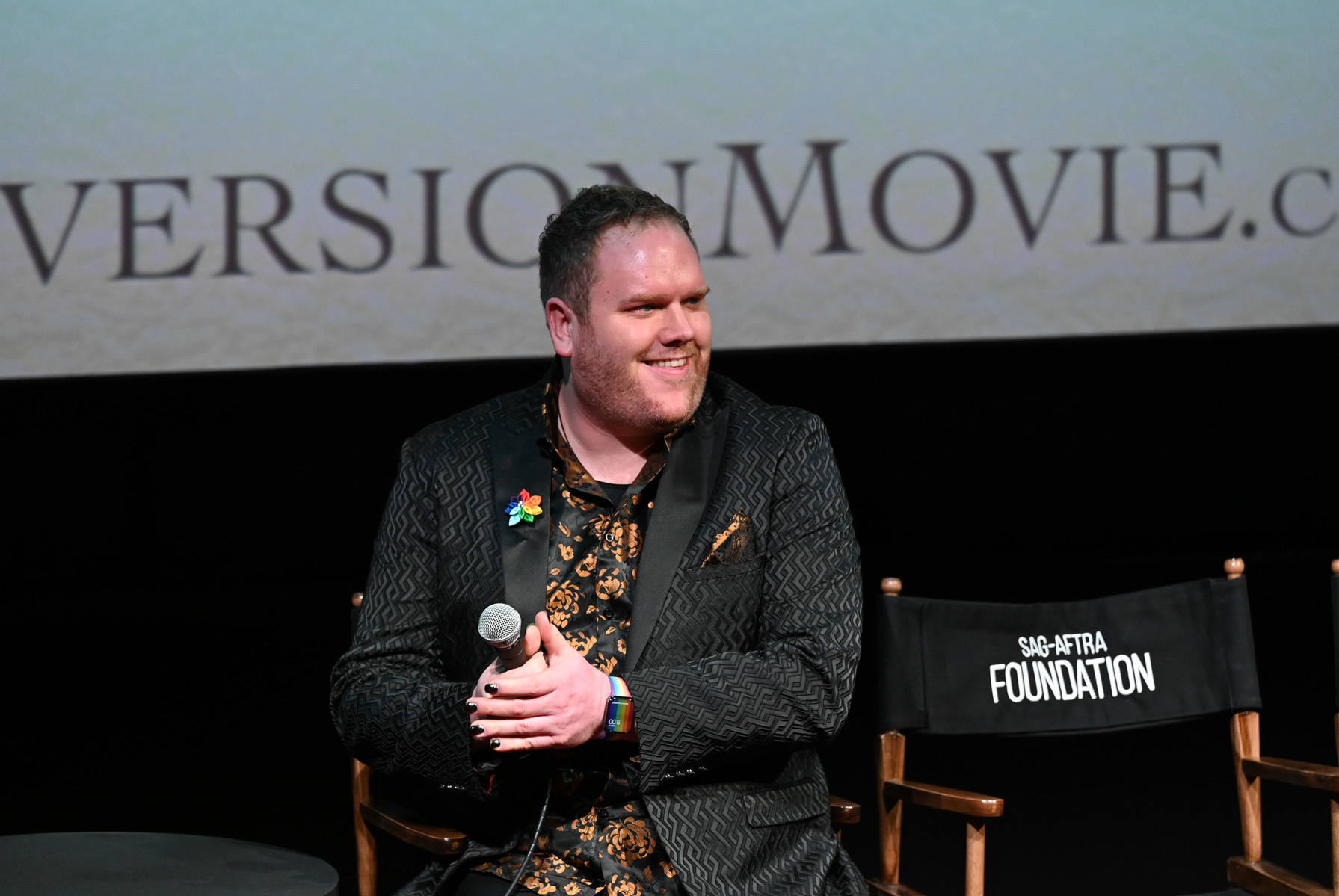What the Supreme Court Can’t See: The Truth Behind Conversion
- Zach Meiners

- Oct 8
- 3 min read

A child’s innocence, a court’s debate. The survivor-led film Conversion (2024) reveals why protecting LGBTQ+ youth should never be up for argument.
“If you think you’re helping your kid by doing this, you’re not. You’re gambling with their life.”
— Zach Meiners, Conversion (2024)
When I said those words in Conversion, I didn’t know how often they’d echo back to me. I didn’t know that one day the Supreme Court would debate whether protecting kids from conversion therapy might go too far.
Our film came from a simple place: survivors telling their stories. No slogans, no scripts, just real people saying out loud what they were never allowed to say in the systems that claimed the power to heal them. Having survivors speak out is a difficult task. It takes courage, because what conversion therapy takes first is your autonomy and your voice.
The Debate Isn’t About Free Speech — It’s About Child Safety
On October 7, 2025, the U.S. Supreme Court heard Chiles v. Salazar, a case challenging Colorado’s law banning conversion therapy for minors.
That law exists for one reason: to protect children from harm disguised as help, and this is backed up by the fact that this practice has been discredited by every major mental health organization.
And yet, some justices framed the issue as one of “free speech” — as if there’s no difference between a conversation and a system built on shame. But ask anyone who’s lived it, and they’ll tell you: there’s nothing free about the kind of speech that convinces a child they’re unworthy of love.
What the Supreme Court Didn’t Hear: "Conversion" Isn't Free Speech
In Conversion, you don’t hear from politicians or pundits. You hear from survivors. This makes our film different from nearly every other documentary on the topic, whose subjects mainly focus on the perpetrators and "therapists," who made a living off of harming struggling kids. In Conversion, it's a different story. You hear Troy Stevenson recount how his first boyfriend died by suicide after being sent to a “doctor” who promised to make him straight. You hear Elena Joy Thurston, a Mormon mom of four, describe reliving her teenage assault for months — told that if she just found the right memory, she could stop being gay. You hear Dusty Ray Bottoms, from RuPaul’s Drag Race, recalling the exorcism their church arranged to “free him” from a gay demon.
These aren’t sound bites. They’re scars. And they reveal the human cost behind the court filings.
When Love Becomes Conditional
The tragedy of conversion therapy isn’t just what it does to LGBTQ+ people — it’s what it does to families. Most parents who send their children to these programs aren’t trying to hurt them. They’re trying to save them. They’re told that love means “fixing” their child instead of accepting them.
In Conversion, you see what happens when that belief collides with reality: the quiet grief of parents who realize too late that love and acceptance were never opposing views.
Laws Can’t Heal, but Stories Can
Whether the Court upholds or strikes down these protections, one truth won’t change: Conversion therapy destroys lives. And no law, no argument about rights or religion, can erase that fact.
What can change hearts, though, are stories. Survivor stories. Stories that remind people that these aren’t hypotheticals or “debates.” They’re children. Kids who deserve to grow up knowing they were never broken to begin with.
The Work Ahead
Our film, Conversion, is survivor-led because survival is where the story begins — not where it ends.
Watch it. Talk about it. Host a screening. Share your story. Start a conversation in your church, your school, or your home. Because policy follows culture, and culture changes when people listen.
No matter what the Supreme Court decides, we can still protect kids by telling the truth.
Watch now on Amazon Prime Video, Apple TV, Youtube TV


Comments